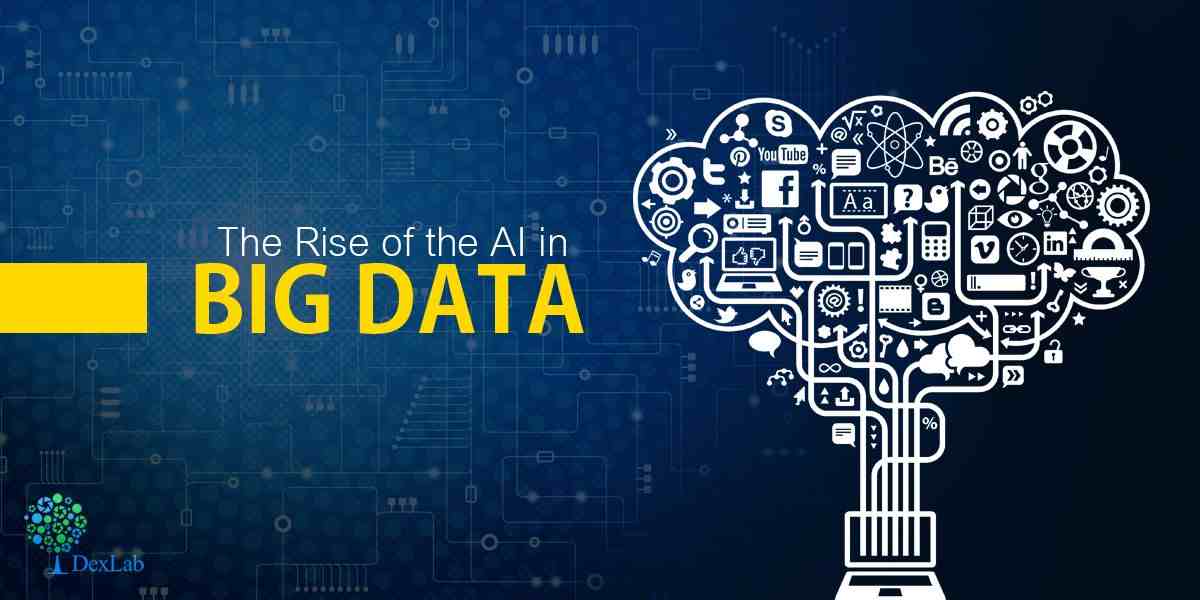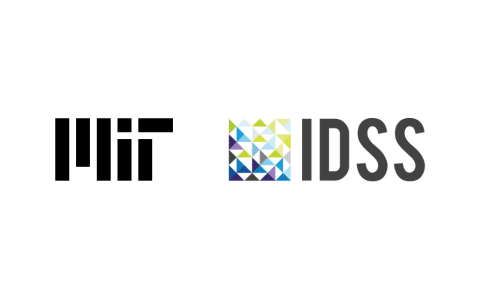Free Big Data Analytics Online Course
Big Data Analytics Course
Learn big data from basics in this free online training. Big data course is taught hands-on by experts. Understand all about hadoop, hive, apache kafka, spark. Go from beginners level to advance in this big data course.
Instructor:
Mr. Sajan Kedia
Ratings
Level
Learning hours

Learners
Skills you will learn
About this course
The Big Data course will introduce you to prominent big data tools, with a few demonstrations and case studies for each of these tools. The course shall focus on working with each of these tools for analytics purposes. It shall begin with a briefing on Hadoop, discussing the framework and its different versions. You will learn about the Hive tool to work with SQL and illustrations, the Spark tool for steaming and analyzing, the RDD and PySpark concepts, working and functioning.
In the latter part of the Mastering Big Data Analytics course, you will understand working with Apache Kafka and advanced Spark concepts. The course also includes projects you can work with and five assessments to evaluate your gains on each topic. Complete the course for free and avail your certificate. We allude to the attached materials for reference.
After this free, self-paced, intermediate's guide to Big Data Analytics, you can enroll in the Data Science and Big Data Analytics course and embark on your career with the professional Post Graduate certificate. Learn various concepts in depth with millions of aspirants across the globe!
Course Outline
Hadoop is an Apache suite framework for distributed processing of massive datasets spread across computer clusters.
Hive is an Apache suite software project built for data query and analysis, providing an SQL-like interface to query data stored across databases.
Spark is an open-source Apache suite tool that provides a unified analytics engine for large-scale data processing and an interface for cluster programming.
Kafka is an open-source Apache suite platform for distributed event streaming and high-performance pipelining.
Advanced Spark is responsible for managing, shuffling, and optimizing catalysts for resources to work with huge data sets.
 UPGRADE
UPGRADE
Recommended university programs
What our learners enjoyed the most
Skill & tools
68% of learners found all the desired skills & tools
Our course instructor

Mr. Sajan Kedia
Data Scientist, Myntra
Big Data Expert
Sajan did B.Tech. & M.Tech. in Computer Science from IIT BHU. During Masters, he worked on Data Mining & published research papers on the topic. He has worked with IBM Research Labs on NLP part of IBM Watson AI Project. After that, he worked with an AdTech startup as Senior Data Scientist, where he was working on Building Real-Time Machine Learning Models on TBs of Ad stream data.
Currently, he is leading the Data Science Team of Pricing at Myntra, building AI systems for the personalised price. He has very good expertise in Big Data technologies, Machine learning, and NLP. His hobbies are trekking, traveling, adventure and fitness activities.
Frequently Asked Questions
Will I receive a certificate upon completing this free course?
Is this course free?
What prerequisites are required to learn the “Mastering Big Data Analytics” course?
Big Data Analytics is an intermediate-level course, and you will need to have a thorough understanding of computer science to start with the course. You will also have to do a little homework, so we suggest you learn the basics of Data Science and Analytics before diving into this course.
Will I have lifetime access to this free course?
Yes, once you enroll in the course, you will have lifetime access to this Great Learning Academy's free course. You can log in and learn at your leisure.
What are my next learning options after this Mastering with Big Data Analytics course?
Once you complete this free course, you can opt for a Master's in Data Science that will aid in advancing your career growth in this leading field.
Big Data Analytics Course
Big Data Analytics is the statistical analysis of a large volume of data sets in parallel, distributed environments. This course on Big Data gives you a complete understanding of emerging Big data technology and career growth in Big data. It is well designed for beginners as well as professionals.
Big data has significantly impacted industries today, and it is a cutting-edge technology used in every business field.
Nowadays, companies are using big data technologies to make their businesses more informative and make business decisions by enabling data analysts and other professionals to analyze high volumes of data.
Introduction to Big Data
Let‘s talk about data first, before going to the term 'Big Data'.
What is data?
Data plays a very essential and significant role in this technological world. It is defined as any piece of information that refers to or represents conditions, ideas, or objects. Examples are alphabets, symbols, numbers, etc. Data can be students' information, or it can be pictures posted on social media. Data is limitless, present everywhere in the surroundings, and it is increasing day by day.
Now, What is Big Data?
It is defined as the large amount of data that cannot be processed and stored with the traditional system, i.e., Relational Database Management System. Today, we deal with heterogeneous data developed at an alarming rate by multiple sources. This data consists of structured, unstructured, & semi-structured data that can be used for research or analysis.
Why is there a need for Big Data?
Data is growing day by day, so it has become difficult to store and process these huge amounts of data.
Therefore, the following points describe the need for big data.
- * Large Volume of Data
- * Heterogeneous Data (which is structured, unstructured, and semi-structured data)
- * Traditional Database Systems cannot maintain this vast amount of data.
- * Building a single system is complex and not cost-effective.
- * The Relational Database Management System is very expensive.
5 V’s of Big Data :
The 5 V’s of Big Data are as follow:
1.Volume - It refers to the amount of data that deals with the enormous size of Petta bytes. Credit card transactions or tweets in a day are common examples of the high volume of data. Thus, Big data helps in storing and processing this high volume of data.
2.Variety- It is defined as the type of data ‘generating and transferring.
Data present in three formats which are as follow:
- i. Structured Data - The data which exists in a tabular format with a relationship between the different rows and columns. It has a fixed structure or schema.
- Examples of structured data are SQL databases or Excel files. This data is the most traditional form of data storage.
- ii. Semi-Structured Data - Semi-structured data is raw data, which does not exist in tabular format i.e rows and columns. JSON, XML,, and some NoSQL databases like MongoDB that store data in ‘JSON format’ are the common examples of semi-structured data.
- iii. Unstructured Data - Unstructured data is schema-less, highly unpredictable, and cannot be represented in a specific deterministic format.
Common examples of unstructured data are audio, video files, images, or NoSQL databases.
3.Velocity- It refers to the speed at which large volumes of data are being generated, collected, and analyzed. Every day the number of emails, Twitter messages, photos, videos-clips, etc are lighting speeds around the world. Every second of everyday data is increasing.
4.Veracity- It refers to the uncertainty of available data i.e data is valid or not. It arises due to the high volume of data that produces incompleteness and inconsistency. It is the quality or trustworthiness of data that is how accurate is all data?
5.Value - It refers to the worth of the data being taken out. Also, turning data into value. Having an endless amount of data is one thing, but unless it can be turned into the value it is feckless. Therefore, Valuable data is needed.
Big Data Technologies
There are various frameworks in big data technologies to solve the problems of Big Data Storage and processing. Such frameworks are Apache Hadoop, Apache Kafka, Apache Spark, Apache Samza, Apache Hive, etc. Let’s take a look at these frameworks:
Big Data Frameworks
- Apache Hadoop - Apache Hadoop is an open-source framework that allows the storage and processing of a enormous volume of data in a distributed & parallel order.
- Apache Kafka - Apache Kafka is a batch processing framework with a streaming platform.
- Apache Spark - Apache Spark is a data processing framework. It is 100 times faster to process data than MapReduce.
- Apache Samza - Apache Samza is a streaming data processing tool.
- Apache Hive - Apache Hive is a distributed Data Warehouse software.
- Apache Cassandra - Apache Cassandra is a decentralized NoSQL Database Management system.
Applications of Big Data -
Today Big data is everywhere. It is almost in every sector. It has become an essential part of the analysis and is required for the growth of businesses.
Big data has a large range of applications. Following are the applications of Big Data.
1) Social Networking sites
All social networking sites like- Facebook, Linkedin, Twitter, Instagram, etc are generating a huge amount of heterogeneous data on a day to day basis because these all websites include billions of users worldwide.
2) Share Market
Share Market produces a high-volume of data through its daily transaction worldwide.
3) Weather Station
Big data technologies play a vital role in weather forecasting. A massive volume of data is provided on the climate, and an average is extracted to predict the weather. This can be lucrative to predict natural calamities such as floods etc.
4) E-commerce sites
Sites like Amazon, Flipkart, Myntra, Bigbasket produce large amounts of logs from which customers buying trends can be traced.
5) Telecom company
Big Data has a very great impact on Telecom companies. Big telecom giants like Airtel, Jio, and Vi observe the customer trends and releases their plans accordingly. These big companies store information about their million users.
6) Fraud Detection
Big data technologies help in fraud detection and prevention. It also helps in risk analysis and management
7) Healthcare
Big data technology is very important to the healthcare sector. All the information of patients, their health plans, their insurance plans, and their other records are stored and processed with big data. By analyzing huge volumes of structured & unstructured data, healthcare providers can give lifesaving diagnoses or treatments immediately.
8) Public Sector
Big data technology also plays an important role in the government as well as the public sector. It gives a lot of facilities in power investigation, economic promotion, etc.
Government has a record of more than 1.21 billion citizens with UID or Aadhaar cards. This large volume of data is analyzed and stored to find useful information from the data.
Banking, Educations, Agriculture, Advertising and Marketing, Insurance and Travel, and Tourism are the other common applications of Big Data.
Big Data has proved one of the fast-growing technologies in today’s world. It is a boon because it can also be merged with other technologies like machine learning, artificial intelligence (AI), and other cloud technologies.


























.jpg)
.jpg)
.png)












